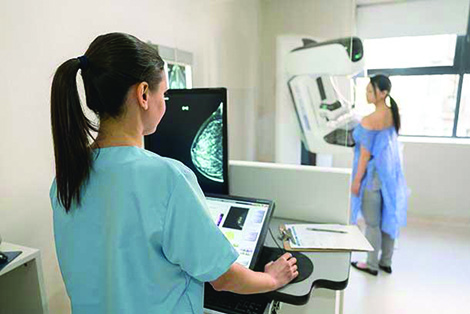
With the emergence of COVID-19, routine preventive care, including breast, cervical, and colon cancer screening, decreased dramatically to prioritize urgent care and reduce the spread of the virus in medical facilities. The good news is that 92.6 percent of people in King County ages 5-plus have at least one dose of the COVID-19 vaccine, and half are fully vaccinated. The bad news is that patients aren’t returning to regular preventive health and cancer screenings at the pace seen before the pandemic.
Our medical system is getting back on its feet, and while caution is understandable, it’s critical we get back to scheduling preventive health screenings that help save lives. Cancer is not going away and will not wait for a pandemic to pass.
Routine screenings help detect diseases in the earlier stages and give patients a better chance of beating any deadly disease, especially cancer. Continuing to postpone these vital checkups can lead patients to an advanced cancer diagnosis that is harder to treat.
A model created by the National Cancer Institute (NCI) predicts an excess of 10,000 deaths from breast and colorectal cancer over the next 10 years due to missed screenings, delays in diagnosis, and reductions in regular care caused by the COVID-19 pandemic. The impacts of these missed and delayed screenings are disproportionately felt by communities of color and low-income communities already devastated by the pandemic.
In King County, people who are low-income, uninsured, or facing deductibles may be eligible for free breast and cervical cancer screenings through our Breast, Cervical, and Colon Health Program. Questions about eligibility? Call our referral line at 1-800-756-5437.
In addition, the Colorectal Cancer Alliance’s navigators can help you determine what colon cancer screening approach is right for you and connect you with screening options (including free home tests for those eligible).
This is a great time to schedule a preventive health screening and learn more about cancer prevention. Doctors recommend anyone 45 and older get a colon cancer screening, age 40 and older a breast cancer screening, and 21 or older cervical cancer screening.
Please talk to your doctor to determine which test is suitable for you and #GetScreened. Your life depends on it.
Fred Mariscal, who works in chronic Disease and injury prevention for the Seattle-King County Public Health Department, wrote this article in March for the department’s Public Health Insider blog.